Mad, Bad and Dangerous to Know. A tenuous link to Byron at Nafpaktos
Dave the motorhome was battered by the rain last night at the sea-front parking spot a few minutes walk from Nafpaktos (N38.38718 E21.82095). The shell of the van amplifies the hammering rain, sleep’s impossible even with ear plugs, so we slept in this morning instead. We waited for the rain to clear, wrote an article about making money travel blogging, and only headed into town in the afternoon. Given the fact we’re a bit bleary-eyed, and need to time our run into Athens to avoid locked museum day (Monday), we’ve decided to take it easy (imagine that) and stay here another night. A Dutch and British van have arrived during the day and parked behind us; it’s good to have some company.
Right, I’ve shoe-horned in a reference to Lord Byron, I couldn’t help myself, the bloke’s a fascination and he came from Newstead Abbey, just down the road from where I grew up. I first heard about him when I read Mad, Bad and Dangerous to Know, an autobiography by Ranulph Fiennes, a moving book for any vicarious adventurer. He’d nicked the title, a certain Lady Caroline Lamb had gushed it out back in 1812 before it was used to refer to Fiennes a century and a half later (after some calamity involving stolen explosives and a film set). Lady Lamb was referring to the poet Lord Byron, who she went on to have an affair with before he broke it off some few months later leaving her pining for him forever after. Anyway, the mould made for Lord Byron was later used to fashion Zorba the Greek, both rogues, both philanders, both living life on the edge, even if one’s a fiction. They love Byron here in Greece. He chose to spend his fortune, time and ultimately his life, helping them break away from the Ottoman Empire. He died down the road from here (of blood poisoning rather than a Turkish yatagan) while plotting to take the castle at Nafpaktos. This feat would have been impressive, we’ve been up to see it today and it’s a beast.
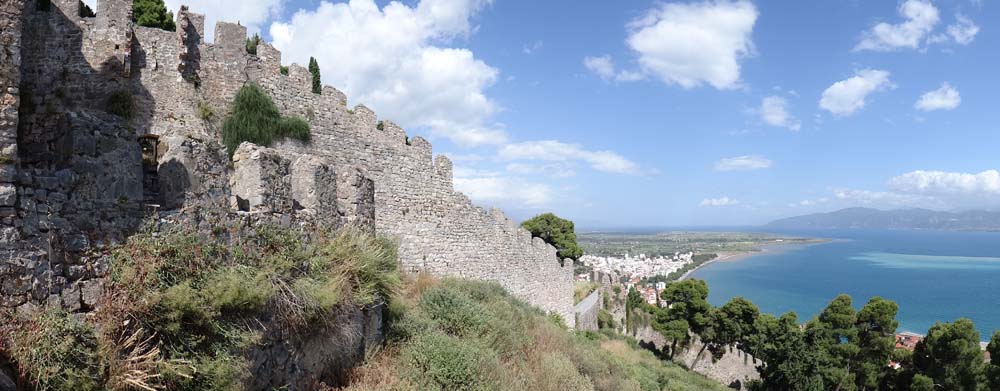
Nafpaktos castle on a sunny day in May. Even Byron might have struggled to get his leg over these, ahem.
The Venetian castle and the walls at Nafpaktos dominate the place. I would have thought the invention of gunpowder would have done away with the usefulness of a castle, but it seems otherwise. The occupiers thickened the walls and installed their own canons, Bob’s yer Uncle. The walls run down from the hillside to encompass the cute little port below (where tourist buses pull up and let folks out for a few minute’s leg stretch). They also run along the gradient of the hill (with cars and mopeds now parked alongside the crenelations where archers would have stood) to build up five lines of defence; they look impenetrable. I imagine Byron could have talked his way in though.
On the way up to the castle, which we reached way past 3pm when all these historical places close in Greece, there are the ignored remains of the Turks. A bathhouse with its domed roof, holed to allow steam out and light in. Its doorway, half-covered in undergrowth, proudly arches into a point, born of Eastern architects. Further along there’s a Turkish fountain, still working, water falling into the moulded sink in an ancient stone. The Ottomans had the effect of slowing development in all the countries they occupied (arguably a result of their own Islamic faith), but at the same time were well known for their tolerance of non-Muslims. Orthodox Greeks lived alongside Muslim Ottomans in Greece and in Turkey during their reign. Once the Ottomans were booted out of Greece though, all this stopped and the majority of evidence for their existence was wiped away, deliberately ruined or simply allowed to decay to nothing, explaining why we don’t see a great deal of it.
Back in the world of the here and now, the map’s been out again and we’ve got our route planned to Delphi and into Athens. It’s gonna be a history-a-thon! If you’re not into all that stuff, you might want to skip a few days of the blog… The ‘should we go to Albania’ vote’s showing a resounding ‘yes, get in there’ result, and we’re going to have a go. The only potential issue is my passport has less than 6 months left on it (don’t ask), so the Albanians might turn us away at the border.
Right, we’d best go and have a chat with our new British neighbours, there are so many interesting folks on the road, wonder what we’ll learn today? A few more scenes from today’s wanderings:
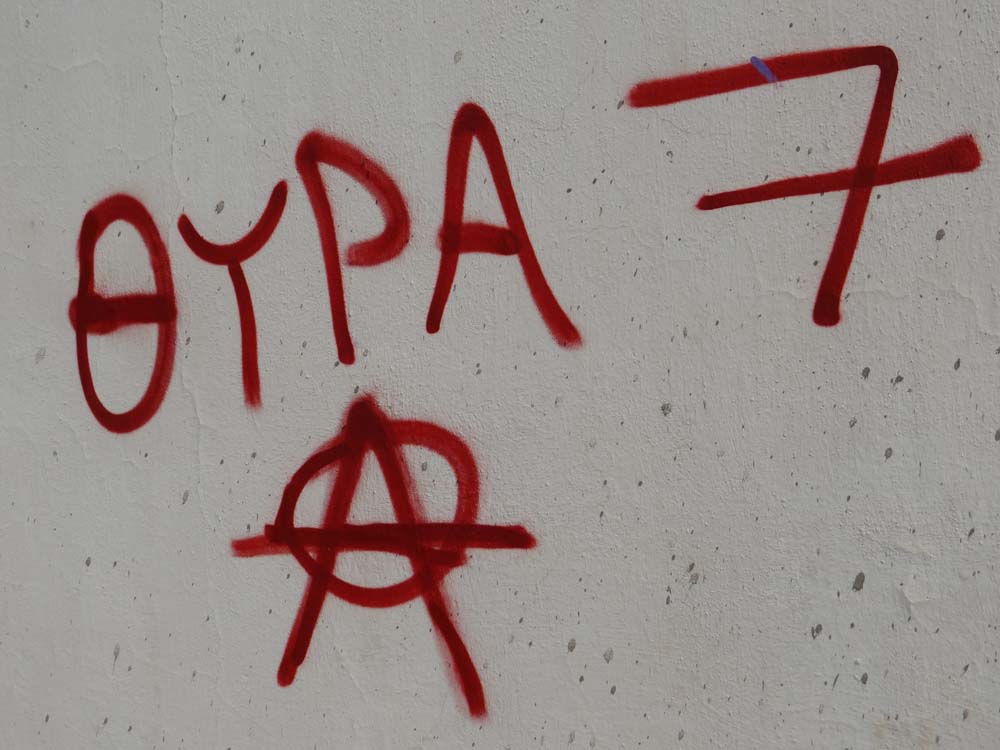
If you’re thinking of starting a business in Greece, start one selling spray paint, you’ll be rich! We finally sussed out what the ‘looks a bit like a swastika’ graffiti is we keep seeing; it’s the symbol of the Golden Dawn party, Greece’s very own nationalist fascists, lucky old Greece.
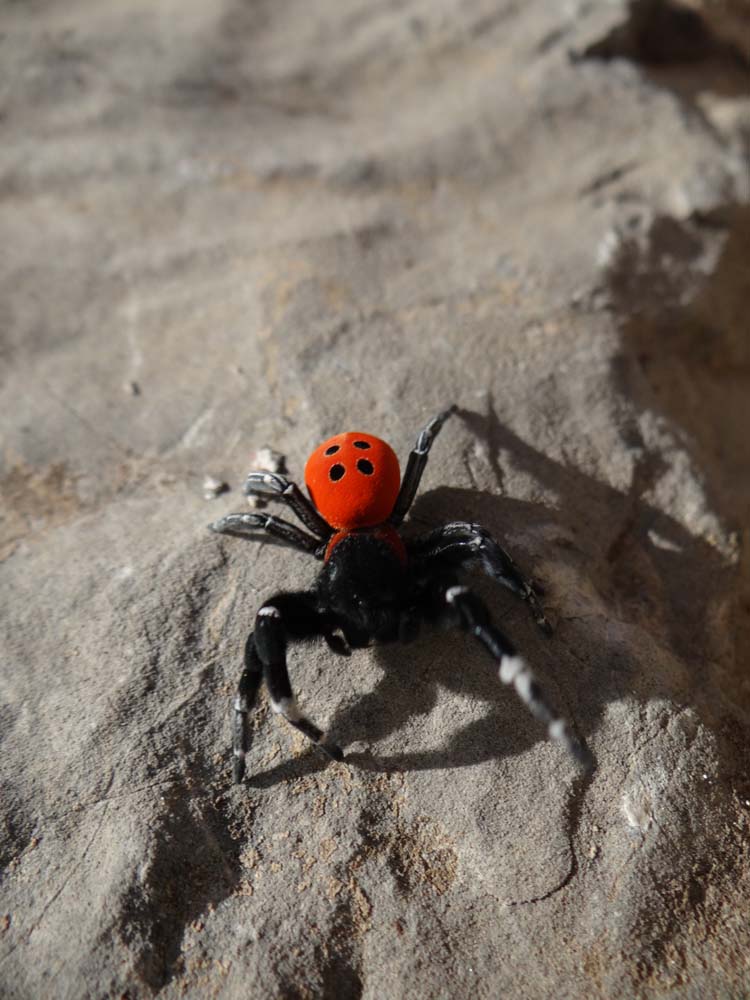
The Greek equivalent of the ladybird. Not dangerous, but you might have a heart attack if one crawls onto your foot in the taverna.

The most expensive toll bridge, in the world? The ferry still runs from the Peloponnese to mainland Greece and we wondered if it would have been cheaper.
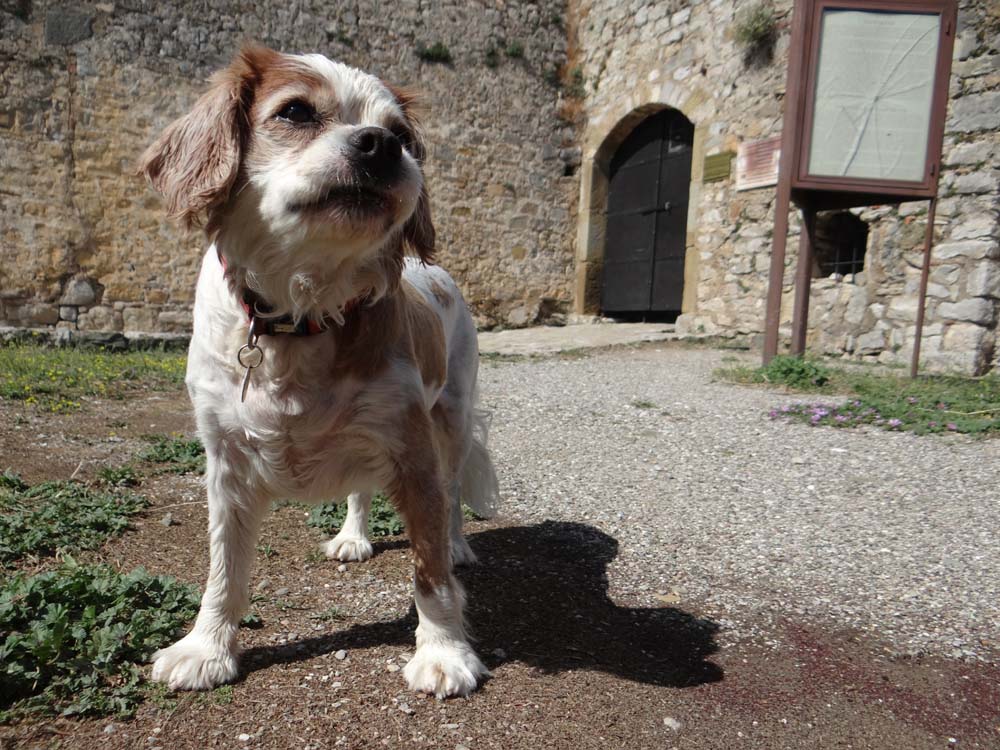
Charlie says: ‘gurumph, these opening times are pants’. What he really means: ‘phew, any further and me paws would wear out’.
Cheers, Jay

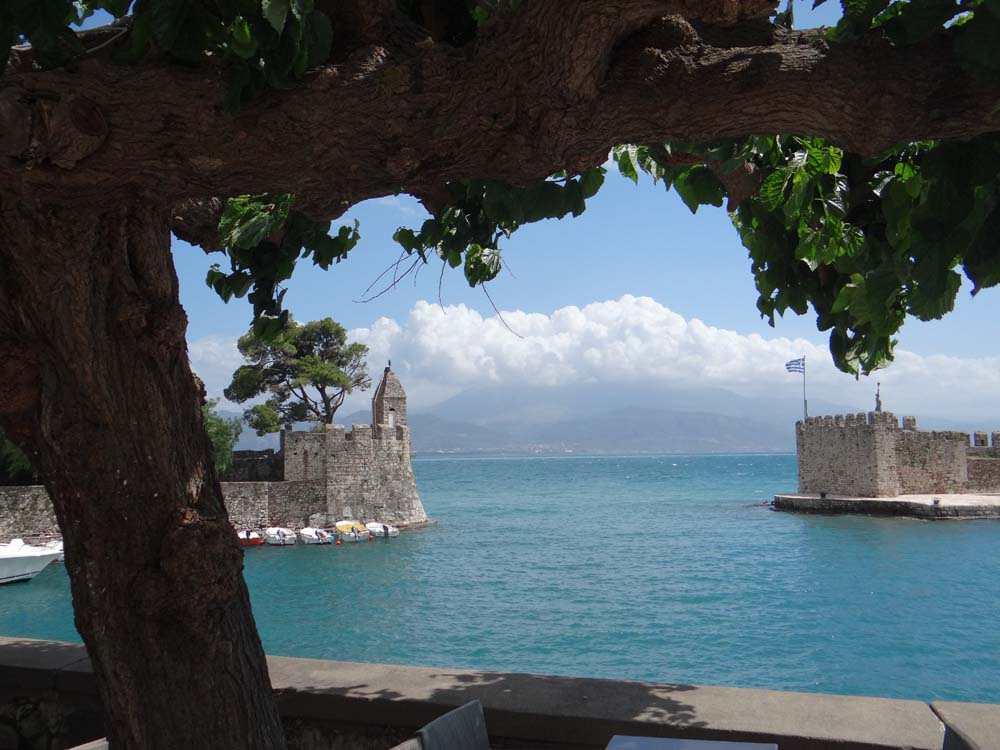
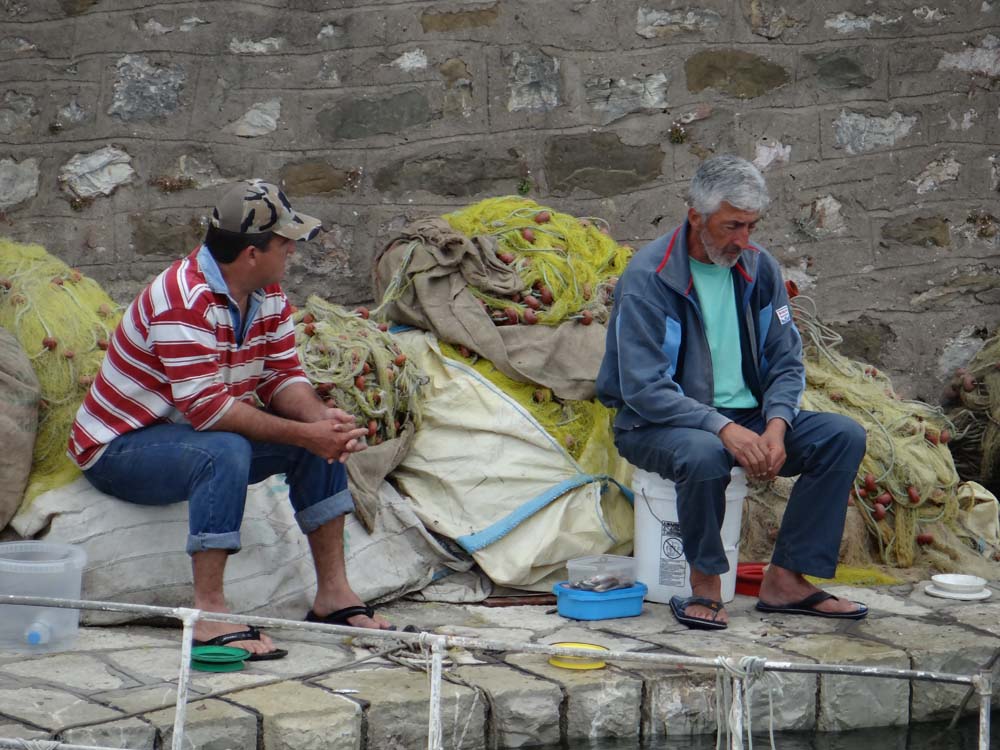
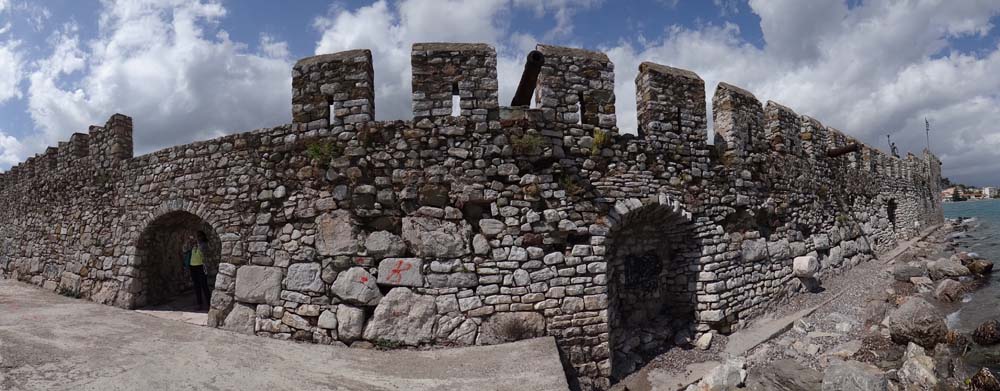
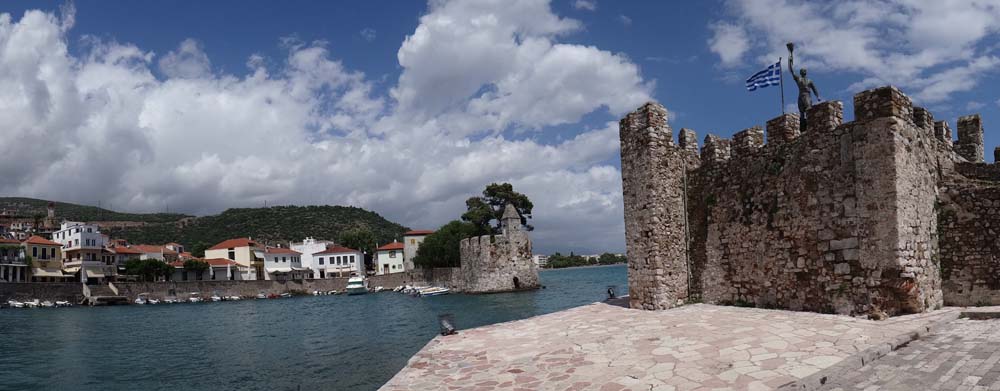
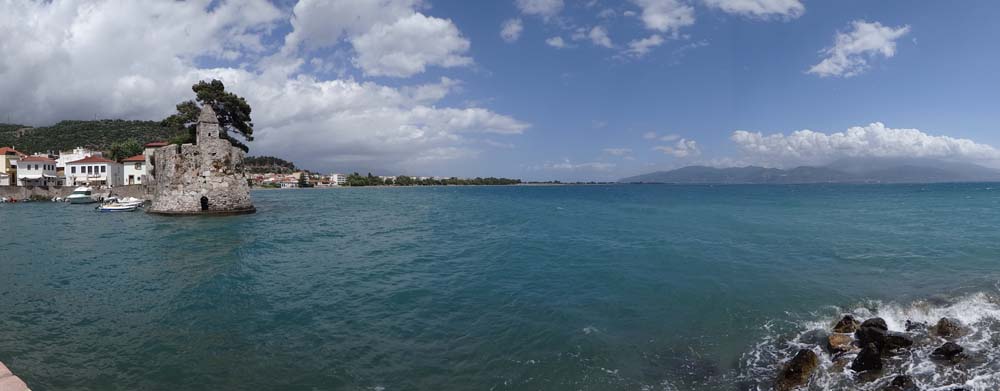

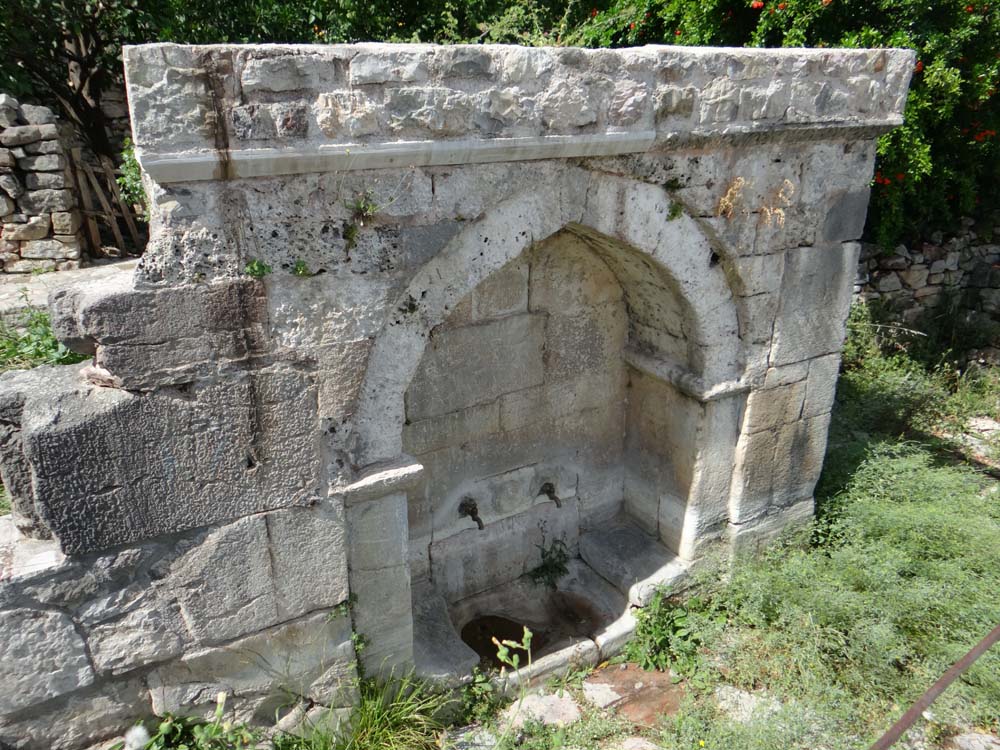
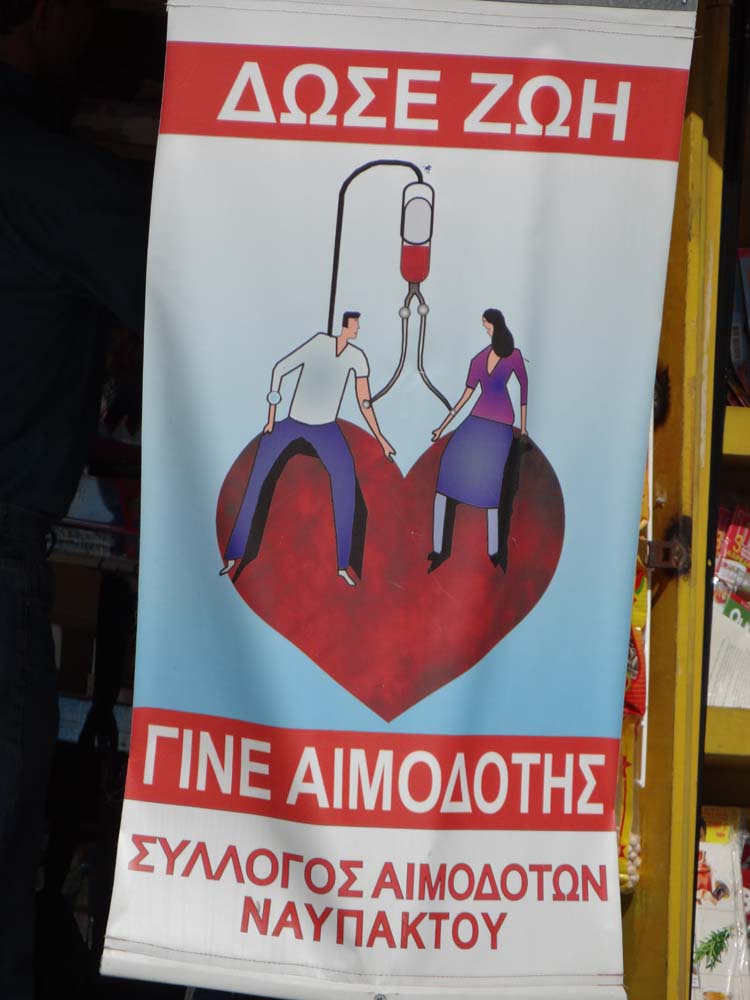
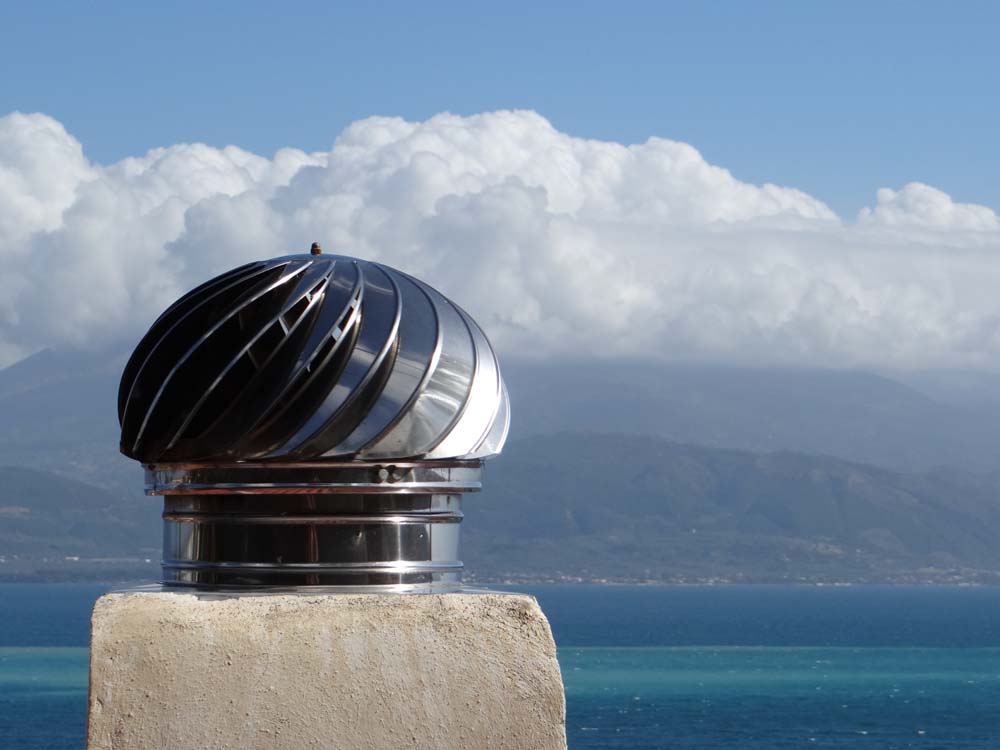
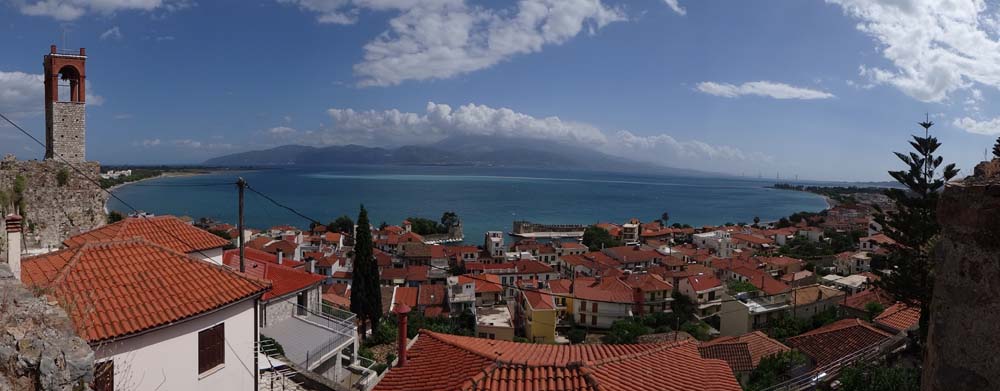
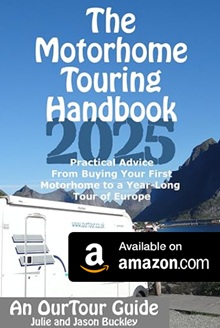
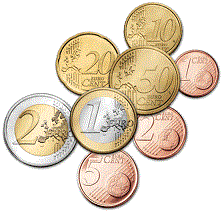
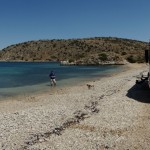
Leave a Reply
Want to join the discussion?Feel free to contribute!